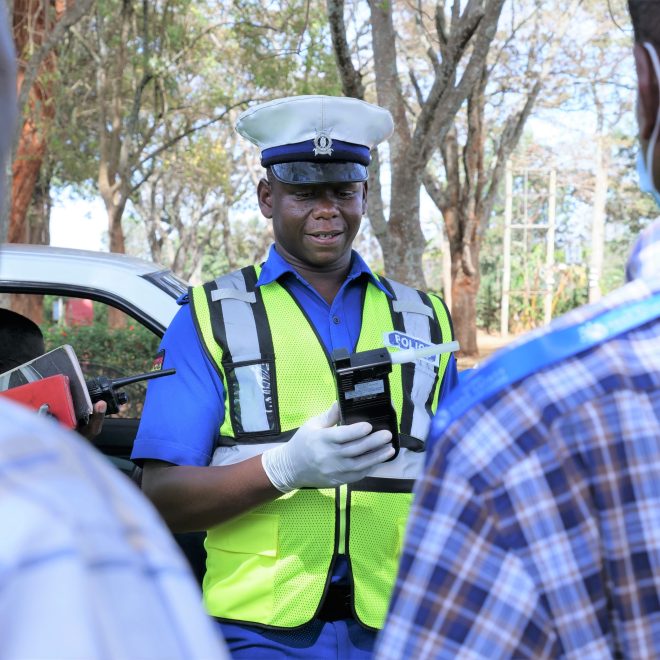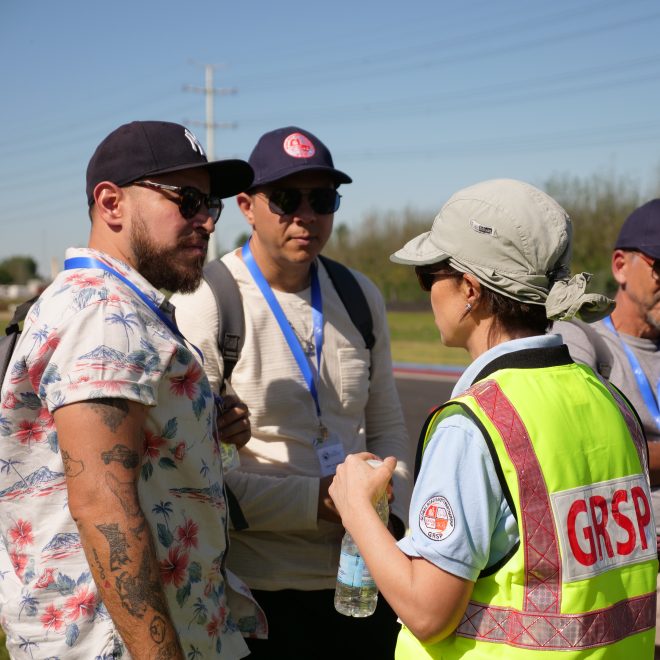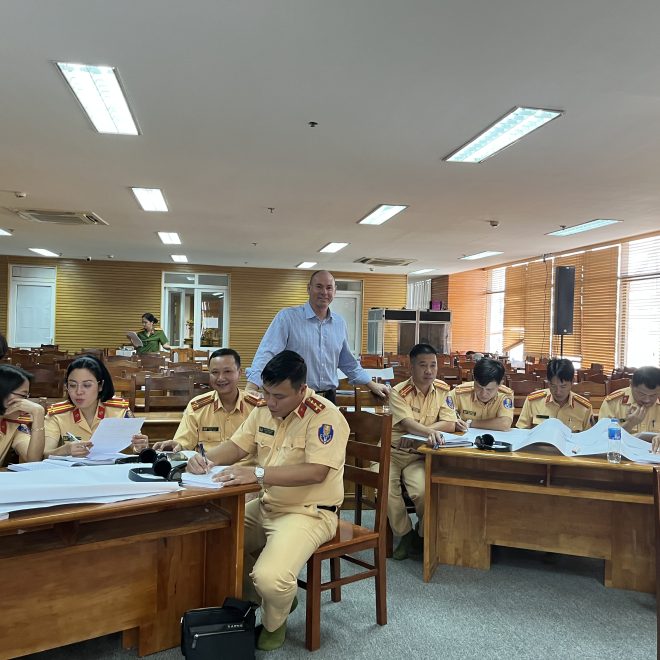

In my first few years as a young Constable in New Zealand in the mid-1980s, catching alcohol-impaired drivers was very much like ‘shooting fish in a barrel’. Most late night breath tests resulted in the driver being over the limit.
In the early days, the ‘blood alcohol concentration (BAC) limit’ was 0.1 and police required ‘good cause to suspect’ to be able to administer a breath test. Drink driving rates were horrendous and one of the contributors to New Zealand having nearly 800 road deaths a year. The fatality rate was around 24 crash deaths per 100,000 population, which by today’s standards would be utterly intolerable, but in those days, it was accepted as normal. Having to attend alcohol-related crashes was a regular and confronting part of policing.
In my first few years as a young Constable in New Zealand in the mid-1980s, catching alcohol-impaired drivers was very much like ‘shooting fish in a barrel’. Most late night breath tests resulted in the driver being over the limit.
In the early days, the ‘blood alcohol concentration (BAC) limit’ was 0.1 and police required ‘good cause to suspect’ to be able to administer a breath test. Drink driving rates were horrendous and one of the contributors to New Zealand having nearly 800 road deaths a year. The fatality rate was around 24 crash deaths per 100,000 population, which by today’s standards would be utterly intolerable, but in those days, it was accepted as normal. Having to attend alcohol-related crashes was a regular and confronting part of policing.
A focus on reducing alcohol-related road deaths emerged in the late 1980s and involved hard hitting television campaigns, the introduction of compulsory breath testing (CBT) that allowed police to breath test anyone at any time and, ultimately, a 0.05 drink drive limit. Inspired changes to the law contributed to major reductions in alcohol-related road trauma.
Another huge gain came from police understanding that CBT wasn’t a strategy to catch more intoxicated drivers, it was designed to deter drinkers from driving. The operational practice followed the advice of Dr. Ross Homel and what became widely understood by police as ‘Homel’s Principles’.
Police became focused on a road policing programme that was:

📸: Waka Kotahi NZ Transport Agency
We later learned that there were two other important factors:
Once police really began to understand what effective operational practice was, we became highly effective at deterring alcohol affected driving. We had learned that sitting off bars waiting for inebriated road users to drive or only stopping drivers who weaved within their lane or gave signs of intoxication was great at catching people, but it wasn’t an effective deterrence strategy.
The Global Road Safety Partnership (GRSP) encourages police to look hard at their operational practice, to see how it compares with Homel’s principles and to focus on ‘deterring’ drink driving. Good policing saves lives.
Dave Cliff, ONZM MStJ
CEO, GRSP
The last issue of the Signpost included an editorial highlighting the need to put aside ‘common sense’ and focus on what works in reducing road crashes. It was argued that, too often, road safety initiatives are adopted because they sound like a good idea or are based on ‘common sense’, rather than being supported by sound evidence.
The last issue of the Signpost included an editorial highlighting the need to put aside ‘common sense’ and focus on what works in reducing road crashes. It was argued that, too often, road safety initiatives are adopted because they sound like a good idea or are based on ‘common sense’, rather than being supported by sound evidence.
The editorial prompted me to revisit a paper I wrote 25 years ago entitled When common sense just won’t do: Misconceptions about changing the behaviour of road users (see https://eprints.qut.edu.au/7295/). The paper examined the paradox that certain road safety measures popular with the general community had not proven cost-effective when subjected to rigorous evaluation. To demonstrate the point, the paper reviewed three road safety measures that had widespread community support in Australia at the time, but limited evidence of effectiveness, namely: intensive practical skills-based driver training; harsher traffic offence penalties; and the isolated use of mass media road safety campaigns.
While research relating to these three measures has continued over the last 25 years, I have yet to see any compelling evidence that they have become cost-effective despite their continuing popularity with the community.
Community support for measures like these appears to be based on their intuitive appeal, making it a matter of ‘common sense’ that they must be effective. However, on closer inspection, this intuitive appeal is often based on misconceptions about crash causation, the factors influencing road user behaviour, or ways of achieving behaviour change. For example, given that no one is born with the innate ability to operate a motor vehicle, it seems obvious to many that specialised driver training focusing on knowledge of the road rules and vehicle-handling skills should be effective in reducing road crashes.
However, the available evidence indicates that neither a lack of knowledge nor inadequate vehicle control skills are major contributing factors to road crashes. Rather, the evidence indicates that perceptual, cognitive and motivational factors are more likely to contribute to crashes, particularly among young drivers. Furthermore, research has demonstrated that it is difficult to modify the driving skills of the average driver in a permanent way, since specialised skills, such as emergency braking, tend to degrade quickly if not practised regularly.
Lastly, because crashes are relatively rare events, drivers come to realise that illegal or risky driving behaviours do not necessarily lead to crashes. In effect, their on-road experience builds durable behavioural patterns, which are difficult for driver training to modify.
Similar misconceptions underpin the intuitive appeal of harsher penalties. Public support for harsher penalties appears to be based on the belief that it is the severity of punishment which primarily motivates drivers to obey the law. Nonetheless, the evidence indicates that it is the perceived certainty of getting caught and punished, rather than the severity of the penalty, that has the greatest influence on road user behaviour. In lay terms, a harsh penalty will not seem that threatening to drivers if they perceive there is little chance of being caught and convicted for breaking a particular traffic law. This doesn’t necessarily imply that the severity of penalties is of no consequence. Rather, it confirms that it is the existence of penalties applied in a certain manner, combined with effective ‘anywhere, anytime’ enforcement, which is most crucial.
In the case of mass media campaigns, there appears to be a strong belief within the community that they are effective in raising awareness and improving attitudes, which in turn leads to positive changes in road user behaviour. However, while the media can undoubtedly influence attitudes, the link between attitude change and behaviour change is far from clear. For example, research has shown that changes in road safety attitudes don’t necessarily translate into changes in behaviour and that, in certain circumstances, people may first change their behaviour in response to a new road safety initiative (such as the introduction of random breath testing), which in turn brings about changes in community attitudes.
What the evidence is clear about, however, is that mass media campaigns are most effective when they support other measures, particularly traffic law enforcement initiatives like drink driving and speed enforcement programs. Therefore, while mass media campaigns are unlikely to directly contribute to behaviour change, they can play an important role by supporting other measures, by creating a climate of opinion supportive of new measures, and by ‘signposting’ the need for behaviour change.
Two important implications emerge from case studies like these. Firstly, in order to achieve their objectives, road user safety initiatives need to be based on sound behavioural principles, rather than on ‘common sense’ or intuition. This is particularly important since there is a tendency for the public (and some decision-makers) to underestimate the complexities of human behaviour and to overestimate the effectiveness of education in improving road safety.
In contrast, the available evidence indicates that while education is generally a necessary factor, it is rarely sufficient (by itself) to motivate behaviour change. Secondly, road safety agencies need to actively promote the effectiveness of successful road safety measures. This will not only improve support for these measures, but assist in shaping community perceptions about safe behaviour, which may in turn contribute to the acceptance of new evidence-based initiatives.
Professor Barry Watson
Centre for Accident Research and Road Safety – Queensland (CARRS-Q)
Queensland University of Technology, Brisbane, Australia
Vice-Chair, GRSP

Professor Barry Watson is a global road safety expert based at the Centre for Accident Research & Road Safety – Queensland (CARRS-Q), Queensland University of Technology. Barry has over 35 years’ experience in road safety working for government, academic and civil society organisations. He has undertaken research into a wide range of road safety issues and delivered training courses to students and professionals around the world.
From 2008 and 2015, he was the Director of CARRS-Q and responsible for the overall operation of the Centre. From 2015 to 2017, Barry was the CEO of GRSP after which he returned to CARRS-Q to take-up a research professorship. However, he has continued his involvement with GRSP and is currently Vice-Chair of the GRSP Executive Committee.

The Global Road Safety Partnership (GRSP) will attend the World Police Summit 2024 in Dubai, United Arab Emirates, this upcoming March. GRSP’s CEO, Dave Cliff, is set to participate as a speaker during the ‘Effective Road Policing: Challenges and Success Factors’ discussion, which will incorporate the participation of ROADPOL’s General Secretary, Sanja Veic, and the World Health Organization’s (WHO) Violence and Injury Prevention Programme Manager, Jonathon Passmore.
“It is increasingly important that police spend their time on activities that are ‘proven’ to work. The World Police Summit will offer an opportunity to explain ‘evidence’ based approaches to road policing and activities that are proven to reduce the catastrophic global cost of road crash trauma,” shared Dave Cliff.
The conference will be held at the Dubai World Trade Centre and will gather experts from over 120 countries. Globally recognized organizations such as the International Criminal Police Organization (INTERPOL), the Australian Federal Police, and the Korean National Police Agency will be actively participating as well.
A variety of topics will be explored during the 2024 summit, including legitimacy and confidence in policing, intelligence-led policing, new innovations and technology, cooperation and alliances, and global awareness. Additionally, the summit’s organizing team introduced the World Police Summit Awards, which aim to recognize outstanding contributions within the policing and law enforcement sphere.
The GRSP’s road policing team is looking forward to joining an extraordinary roster of participants in the upcoming summit!

From 13-18 November 2023, the Johns Hopkins International Injury Research Unit (JH-IIRU) and the Global Road Safety Partnership (GRSP) hosted a range of road policing leaders in Buenos Aires, Argentina, for the second Road Policing Executive Leadership Course (RPELC).

From 13-18 November 2023, the Johns Hopkins International Injury Research Unit (JH-IIRU) and the Global Road Safety Partnership (GRSP) hosted a range of road policing leaders in Buenos Aires, Argentina, for the second iteration of the Road Policing Executive Leadership Course (RPELC).
The workshop is part of the Global Road Safety Leadership Course (GRSLC) suite of courses supported by the Bloomberg Philanthropies Initiative for Global Road Safety (BIGRS), which integrated participants from Argentina, Mexico, Colombia, Brazil, and Ecuador.
The RPELC welcomed 33 road policing leaders for a week of discussions and sessions on procedural justice, effective road policing leadership and integration, tasking and coordination, and causative risk factors.
The sessions were facilitated by GRSP’s Road Policing Capacity Building team, with the help of the International Association of Chiefs of Police (IACP) and Edgar Zamora from the International Road Assessment Programme (IRAP).
With the support of the Body of Traffic Agents of Buenos Aires, the attendees also participated in a series of hands-on activities. They analyzed crash and braking distance scenarios and speed, drink driving, and motorcycle checkpoints.
The RPELC will be very useful for our work, not just for me as a participant of the course, but for the traffic officers of Buenos Aires. Gaining knowledge of the Safe Systems approach helps us grow as an organization; it helps us continue to be on the path of professional road safety and mobility,” shared Leo, General Coordinator of the Body of Traffic Agents at the Urban Mobility Monitoring and Management Center of Buenos Aires
The JH-IIRU and GRSP teams are grateful to the BIGRS for their immense support in the delivery of the training. Moreover, we wholeheartedly congratulate every RPELC 2023 graduate for their constant engagement and dedication throughout the days of intense learning in Argentina.


In October 2023, the Vietnamese cities of Hanoi and Ho Chi Minh City hosted the Global Road Safety Partnership (GRSP)’s two-week capacity building training entitled ‘Train the Trainer – Speed Enforcement’, which focused on working with a cadre of road policing practitioners to become trainers within their own organization.
The workshops saw the participants exposed to the World Health Organization’s (WHO) Sustainable Development Goals (SDGs). With the support of our team, they explored the goals that specifically relate to the objective of halving road deaths and injuries by 2030.
In October 2023, the Vietnamese cities of Hanoi and Ho Chi Minh City hosted the Global Road Safety Partnership (GRSP)’s two-week capacity building training entitled ‘Train the Trainer – Speed Enforcement’, which focused on working with a cadre of road policing practitioners to become trainers within their own organization.
The workshops saw the participants exposed to the World Health Organization’s (WHO) Sustainable Development Goals (SDGs). With the support of our team, they explored the goals that specifically relate to the objective of halving road deaths and injuries by 2030.
Moreover, a natural extension of the training saw the group learn about how SDGs could be achieved using the Safe System approach, as well as using a partnership approach with a theme of shared responsibility. Further topics discussed included speed enforcement principles, which generated significant discussion around global best practice relative to police operational activity based in intelligence.
Additional presentations centered on the need to use intelligence to understand the risk factors to be targeted within their policing areas and then establish target locations having regard to time, days, road user demographic, and location. Additionally, the training integrated supportive information for participants to enable them to effectively monitor their performance toward achieving desired outcomes around reductions to road trauma.
Finally, the workshop closed off with a strong focus on how best to establish and conduct safe roadside with a safety-first approach, which considers the safety of police, road users, and any other person who enters the area of operation.
Following the workshops, GRSP provided additional support to traffic police leaders by assisting them to formulate enforcement plans in accordance with the content discussed in the training, together with a visit to an operational roadside checkpoint.